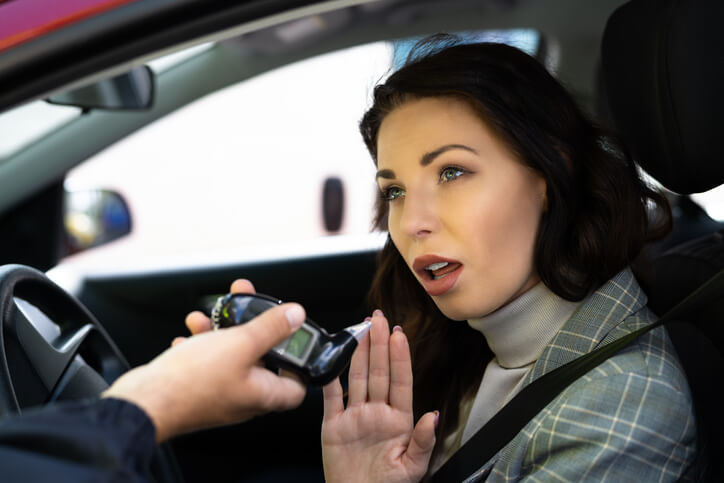Encountering a sobriety checkpoint can be a tense experience, especially if you’re faced with the decision of whether to take a breathalyzer test. In North Carolina, understanding your rights and the potential consequences of refusing a breathalyzer is crucial.
What is the Implied Consent Law?
North Carolina, like many states, operates under an implied consent law. This means that by obtaining a driver’s license and operating a vehicle on the state’s roads, you are deemed to have consented to chemical tests, including breathalyzer tests, if lawfully stopped under suspicion of impaired driving.
While implied consent exists, you do have the right to refuse a breathalyzer test in North Carolina. However, exercising this right comes with potential consequences that extend beyond the immediate situation.
Immediate Consequences of Refusal
Upon refusing a breathalyzer test, your driver’s license can be immediately revoked for a period of one year. This is an administrative penalty and is separate from any criminal charges related to impaired driving.
Refusing a breathalyzer can also impact any subsequent criminal case for impaired driving. Prosecutors may use your refusal as evidence of consciousness of guilt, and the absence of breathalyzer results may lead to other forms of evidence being given greater weight.
Refusal to take a breathalyzer test is admissible in court, and jurors may be instructed that they can draw certain inferences from this refusal. This can potentially sway the outcome of a trial for impaired driving.
In North Carolina, you do not have an absolute right to consult with an attorney before deciding whether to take a breathalyzer test. However, if you are taken into custody and are facing additional testing at a police station, you may have an opportunity to consult with an attorney at that point.
Consequences for Multiple Refusals
If you have previously refused a breathalyzer test within the past seven years, the penalties for subsequent refusals increase. A second refusal within this timeframe can result in a four-year license revocation.
While refusing a breathalyzer test can have consequences, it is not an automatic admission of guilt. Skilled legal representation can help challenge the admissibility of the refusal in court and build a defense tailored to the specific circumstances of your case.
If you find yourself in a situation where you’re contemplating refusing a breathalyzer test, seeking legal guidance is crucial. An experienced North Carolina attorney can assess the circumstances, explain your rights, and help you make informed decisions based on your unique situation.
Choosing whether to refuse a breathalyzer in North Carolina involves understanding the implications for your driving privileges and any potential criminal charges. While you have the right to refuse, the consequences are significant, and seeking legal advice can empower you to make informed choices in the best interest of your situation.
The Attorneys at Hancock Law Firm, PLLC Help Those in North Carolina Who Have Been Accused of Driving While Intoxicated
If you have been accused of driving while intoxicated, how you handle the situation can impact the outcome. Your best bet for handling it the right way is with the help of a knowledgeable and experienced North Carolina criminal defense attorney who understands what you are up against and will fight on your behalf. However, time is of the essence, which is why it’s best to contact a qualified attorney as soon as possible.
At Hancock Law Firm, PLLC, we fully understand what is at stake and will do everything that we can to help you. To learn more or to schedule a free consultation, contact us today!


